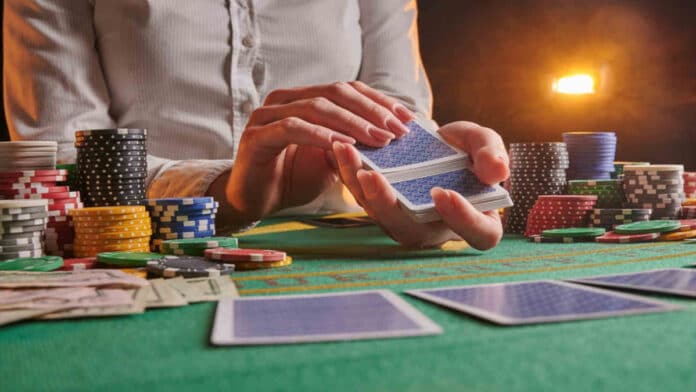
The unmistakable chiming of slot machines, hushed conversations, and laughter aren’t the only sounds you’ll find in a casino.
Another integral element, often overlooked but constantly present, is music. This article delves into the significant role of music in casino atmospheres from a psychological perspective.
Atmosphere in Casinos
Stepping into a casino, one is greeted by a carefully constructed environment. Rich carpets, intricate designs, and strategically positioned lighting all contribute to a captivating ambiance. Yet, the underlying tone of the entire atmosphere is set by the music. Subtly playing in the background, music helps mold the mood, tempo, and overall vibe of the casino, having a significant psychological impact on gamblers.
Music and Human Behavior
Music is a universal language that powerfully influences human emotions and behaviors. It is widely used in various settings, such as retail stores and restaurants, to affect consumer behavior. The tempo, volume, and genre of music can all evoke different emotional responses, which in turn impact decision-making processes. For example, faster tempo music has been linked with increased levels of arousal and excitement, influencing people to make decisions more impulsively.
Role of Music in Casinos
In casinos, music serves a dual purpose: creating an enjoyable atmosphere and subtly encouraging specific behavior patterns. Typically, upbeat and fast-tempo music is played to generate excitement and invigorate players, fostering a lively environment conducive to risk-taking.
Conversely, during quieter periods, casinos might opt for more mellow music to create a relaxed atmosphere that encourages longer stays. The choice of music genre is also strategic. Familiar songs from the ’60s and ’70s are often chosen to appeal to a demographic that typically frequents casinos, making them feel more comfortable and engaged.
Of course, if you’re playing at the latest online casinos from home, you can play whatever music you like!
Psychological Effects of Casino Music
The psychological manipulation via music in casinos is subtle yet impactful. Fast-tempo music heightens arousal levels, causing players to bet more rapidly and less cautiously, consequently spending more money. Conversely, slow-tempo music can lead to a relaxation response, elongating perceived time and encouraging players to stay longer.
The music also helps mask the reality of losing, transforming it into an acceptable part of the overall pleasurable experience. Essentially, music serves as a psychological tool that enables the casino to manage gamblers’ moods and behaviors.
Mood, Behavior, and Perception
Music influences players’ mood, risk-taking behavior, and perception of time spent gambling. Upbeat tunes can heighten the gambler’s mood, making them more prone to risky decisions, while slower, relaxed melodies can distort the perception of time, leading gamblers to play longer.
Moreover, music can even give players an illusion of control; for instance, recognizable songs can make players feel at ease, fostering an unwarranted confidence in their gaming skills.
Ethical Implications
As we uncover the powerful impact of music on gambling behavior, it is necessary to ponder the ethical implications. While using music to provide a pleasant atmosphere is generally accepted, exploiting its impact to encourage excessive gambling raises moral questions.
Some jurisdictions have implemented regulations to promote responsible gambling, but the specifics on the usage of music are often left unaddressed. It is crucial for casino operators and regulators to find a balance that respects both the business’ profitability and the well-being of gamblers.
In Summary
From the gentle background music that fills the gaming floors to the pulsating beats that accompany victory celebrations, music plays a pivotal role in the casino atmosphere, psychologically influencing player behavior.
As we grow more aware of the potency of music in such environments, it’s clear that its role is as much about psychology as it is about entertainment. Future discussions should focus on regulating the use of music in ways that promote responsible gambling while still ensuring an engaging gaming environment.
Through the lens of psychology, we can better understand how the allure of casinos extends beyond their bright lights and vast gaming options; it is also embedded in their soundtracks, subtly shaping our gaming experiences and decision-making processes.








